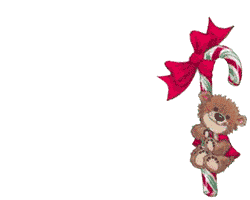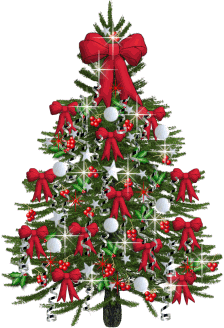Christmas has been celebrated on December 25 since 336 A.D. The tradition started as a Christian holiday honoring the birth of Jesus and has evolved into an international holiday that embodies family togetherness and good cheer.
Christmas gets it name from "Christ," meaning "Messiah" or "Anointed One," and "Mass," meaning "religious festival." Jesus, born in Bethlehem to the Virgin Mary, was given the title of "Christ" because he was regarded as a great king who would protect people from all wrong and evil.
So great, in fact, that the Three Kings, or Three Wise Men, brought three gifts to honor him: gold, frankincense (a resin burned in the worship of God) and myrrh (a plant oil used to bury the dead and a symbol of mortality). These gifts symbolized Jesus' excellence, his close relationship with God (as His son) and his oneness with the human race.
While some still regard Christmas solely as a religious holiday, Christmas has become, for many, a day to celebrate family and be merry (and to needlessly spend aplenty, as some cynics would note!). In the spirit of holiday cheer, many observe the traditions of Santa Claus, mistletoe, Christmas trees and Christmas cards described below.

Santa Claus gets his origins from St. Nicholas, a generous man from the 4th century A.D. who helped the children and the poor, often throwing gifts through children's windows to make them happy. Brought to America by Dutch immigrants in the 1600s as "Sinter Klaas," Americans soon began calling him "Santa Claus." Through the imagination of various authors and illustrators, Santa evolved into the fat, jolly, red-suited man from the North Pole we know today.
Kissing under the mistletoe, our favorite sprig of green leaves and white berries, dates back to a 17th century English custom. At that time, a berry was removed every time a kiss was made, which meant there were no kisses when there no berries. We seem to have since forgotten about the berry removal - allowing us to fully concentrate on the kissing!
The tradition of Christmas trees was started in 16th century Germany. Martin Luther, a German theologian, is thought to have popularized the concept. On a brisk, clear Christmas Eve, Luther was walking home under a bright, starry sky, which was so beautiful that he wanted to recreate its beauty for his children. His idea was to decorate a large evergreen with glowing candles, a custom we still honor today in more modern forms.
And last but not least: the Christmas card, probably the most popular way to express holiday sentiments, was started in England in 1843. The first Christmas card was printed in the United States in 1875 by Louis Prang, a Massachusetts printer. By running nationwide contests for the best Christmas designs, Prang helped launch Christmas cards into a multibillion dollar industry.
Nowadays, most people prefer E-cards. An e-card is similar to a postcard or greeting card, with the primary difference being that it is created using digital media instead of paper or other traditional materials. Below, I'm posting a couple of links that let us send beautiful e-cards. I hope you like !!



